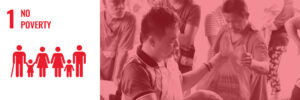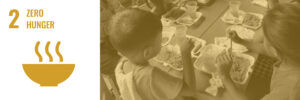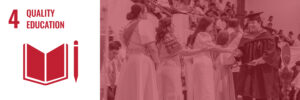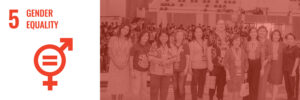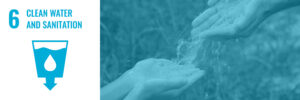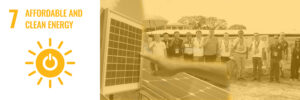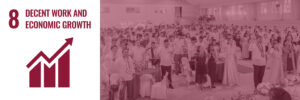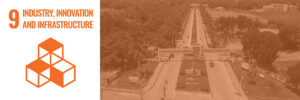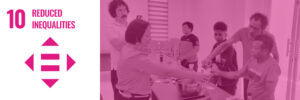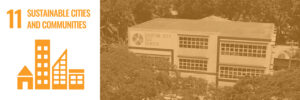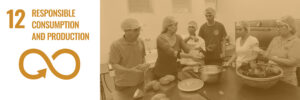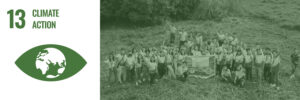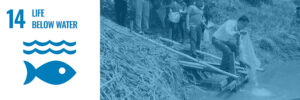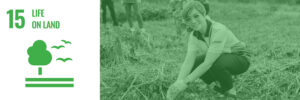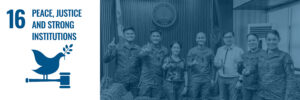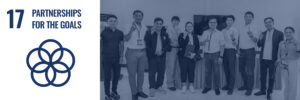2023 – Reports | SDG 4 – Quality Education

Isabela State University (ISU) stands as one of the foremost Level IV State Universities and Colleges (SUC) in the Philippines, playing a crucial role in advancing the global agenda for education, particularly in the context of Sustainable Development Goal 4 (SDG 4): Quality Education. The university’s impact on SDG 4, which seeks to ensure inclusive, equitable, and high-quality education while promoting lifelong learning opportunities for all, is profound and far-reaching.
At the core of ISU’s mission is its unwavering commitment to providing accessible and quality education across all levels, serving a diverse student population from varying socio-economic, gender, geographic, and personal backgrounds. This inclusivity aligns directly with the principles outlined in SDG 4, which emphasize that education should be accessible to everyone, regardless of their circumstances. By prioritizing these values, ISU not only offers academic programs that cater to the needs of a wide range of students, but it also fosters an environment where education is a tool for social mobility and empowerment.
One of the university’s key strategies in advancing SDG 4 is its emphasis on removing barriers to higher education. Through scholarships, financial aid programs, and flexible learning options, ISU ensures that financial constraints do not impede access to education for deserving students. Geographical and economic factors often limit access to quality education in rural areas, making this approach particularly significant. By expanding educational opportunities to underserved regions, ISU contributes to bridging the rural-urban educational divide, a critical element of SDG 4’s mandate for equity.
Moreover, ISU’s dedication to high-quality education extends beyond traditional academic instruction. The university offers a broad spectrum of programs aimed at equipping students with the skills and knowledge necessary for success in a rapidly evolving global landscape. In addition to meeting national and international standards, these programs anticipate the evolving needs of the workforce and society. By offering courses in emerging fields such as sustainable development, digital technologies, and entrepreneurship, ISU helps prepare students for the challenges of the future, fostering a culture of lifelong learning and adaptability.
Additionally, ISU’s focus on the holistic development of its students reflects its commitment to SDG 4. The university’s strong support services, which include mentorship, career guidance, and counselling, are integral to ensuring that students not only succeed academically but also grow personally and professionally. This comprehensive approach helps students develop the critical thinking, problem-solving, and leadership skills essential for contributing meaningfully to their communities and to the broader goals of sustainable development.
By prioritizing inclusivity, accessibility, and quality education, ISU embodies the core principles of SDG 4. Its multifaceted approach to addressing the educational needs of a diverse student body ensures that the university remains a transformative force in the lives of its students and in the development of communities across the region. Through its unwavering dedication to providing equitable and high-quality education, ISU plays a vital role in advancing both national and global efforts to achieve the 2030 Agenda for Sustainable Development, with SDG 4 as one of its most prominent goals.
Number of graduates
ISU’s commitment to inclusive education transcends conventional classroom environments by integrating innovation into curriculum development and instructional methods. The institution aims to establish a learning environment that caters to the varied needs of its students.
As a comprehensive institution, ISU provides high-quality education, graduating 8,446 students across various majors in 2023, ready to make significant contributions in fields such as agriculture, architecture and fine arts, business and management, criminal justice education, engineering, science and mathematics, information technology, social science and communication, multidisciplinary and interdisciplinary studies, and teacher education.
This extensive range of programs enables students to follow a trajectory that corresponds with their interests and professional aspirations, not merely as prospective employees but as job creators.
Number of graduates who qualified to teach at primary school level
The following qualifications are contributing factors to Isabela State University’s education degrees renowned for their prominent nature: The College of Teacher Education in Cabagan Campus is a Center of Development awarded by the Commission on Higher Education.
Most of the campuses have been granted Level IV, Level III and Level II re-accreditation status by the Accrediting Agency of Chartered Colleges and Universities in the Philippines (AACCUP). The faculty members possess specialized expertise in the domain of education, having undergone rigorous training in enhancing instructional methods and pedagogical approaches. Consequently, their graduates emerge as highly competent professionals, well-prepared to embark upon a profession in primary school education.
The 1,642 graduates of the following education courses who are qualified to teach in the primary level are the: BSE (Bachelor of Science in Education), BEED (Bachelor of Elementary Education), BTLED (Bachelor of Technology and Livelihood Education), BPED (Bachelor of Physical Education), and BTVTED (Bachelor of Technical-Vocational Teacher Education). These graduates are prepared to become a game changer in the academe that possesses innovative teaching pedagogies and strategies as well as to provide an empathetic classroom environment that will develop young citizens with a compassionate heart.
Lifelong Learning Measures
Providing Access to Educational Resources for Those Not Studying at The University
The ISU Linker e-Journal facilitates the unrestricted use and expansion of Isabela State University’s (ISU) digital resources, thereby augmenting the university’s intellectual contributions by transcending geographic constraints.
This initiative enhances the academic community and broadens access for various users, including alumni and community members, facilitating their interaction with the extensive electronic publications offered by the university. The remote access to scholarly literature is a significant advantage of ISU’s digital resource plan. This accessibility allows individuals beyond the traditional classroom to stay informed about recent advancements in their areas of interest. Alumni can remain informed about innovative ideas and advanced research, thereby enhancing their professional skills and fostering lifelong learning. This involvement fosters continuous personal and professional development and assists alumni in maintaining relevance in rapidly evolving sectors.
The provision of free access to ISU’s Linker e-journals presents a significant educational opportunity for community members, as this initiative fosters lifelong learning and connects academic pursuits with broader societal engagement. Using these materials, aligned with ISU’s creative curriculum, will enhance literacy, critical thinking skills, and overall knowledge across various disciplines for community members and stakeholders. This engagement promotes intellectual and cultural growth within the community, cultivating a well-informed citizenry prepared to engage in public discourse.
In addition to resource sharing, ISU fosters cooperation and relationships with external organizations that go beyond mere accessibility. Expanding access to its e-journals enables ISU to invite various stakeholders to participate in knowledge generation and discovery. Partnerships can yield innovative concepts, collaborative research initiatives, and advantageous relationships that strengthen the university and its partners.
ISU’s dedication to resource sharing enables the exchange of information within the wider society, fulfilling its role as a public higher education institution by offering free, high-quality learning that generates, transmits, disseminates, and applies knowledge. It illustrates the concepts of a modern, interconnected society where access to education, research, and participation is open to all. This project emphasizes the importance of freely distributing knowledge for societal benefit and harnessing the power of information. ISU benefits its academic community and significantly enhances societal well-being through the dissemination of digital resources and the promotion of an open access culture. This dedication illustrates that education transcends traditional boundaries and constitutes a reciprocal journey for each student.



Providing Access to Educational Resources for the General Public
To raise awareness about mental health and advocate for improved access to mental health services for both ISU students and the broader community, the Isabela State University (ISU) Guidance and Counselling Unit hosted the “Ensuring Access to Mental Health” webinar, an impactful online event that streamed live on Facebook. The event was designed to ignite crucial discussions about mental health issues, specifically focusing on the obstacles that hinder individuals from obtaining the necessary support—such as stigma, financial limitations, and resource scarcity.
Through a series of insightful presentations and discussions, the webinar not only highlighted these barriers but also proposed practical solutions to make mental health care more accessible. Expert speakers highlighted the importance of destigmatizing mental health issues, advocating for better funding and infrastructure, and fostering a culture of empathy and support. The discussions emphasized that mental health care should be accessible to everyone, regardless of their socio-economic status, background, or personal circumstances.
A key highlight of the event was the introduction of the ISU Guidance and Counselling Unit’s new initiative, which extends its services beyond the university. As part of its commitment to mental health advocacy, the unit now offers free consultations and life coaching sessions to individuals outside the university community. This move signifies a critical step in making mental health support more inclusive and accessible to all, particularly those who might otherwise struggle to find affordable care.
The webinar successfully drew attention to the pressing need for accessible mental health services and positioned the ISU Guidance and Counselling Unit as a central player in this important advocacy, contributing to the well-being of both ISUans and the wider public.
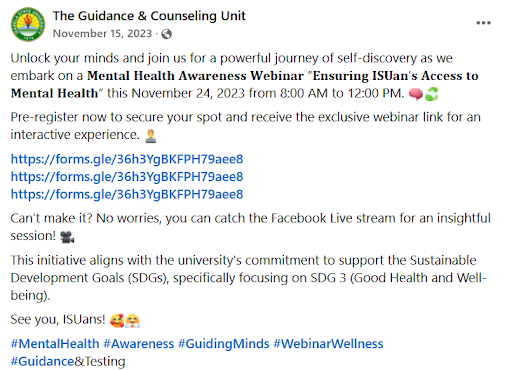
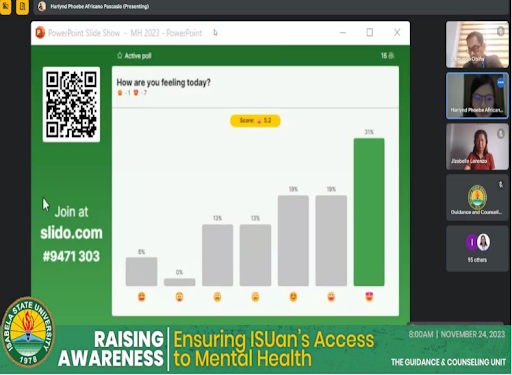
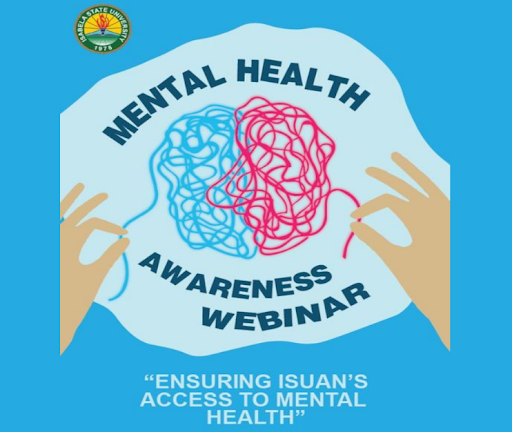
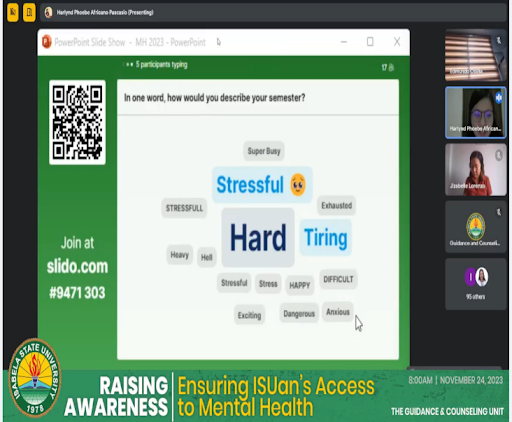
Opening Academic Events for General Public
The Department of Science and Technology (DOST) – Isabela State University (ISU) Smart City Technology Business Incubator (DISC-TBI) has open to the public the TechBridge program, a groundbreaking initiative designed to empower startups in the Philippines, particularly those focusing on smart city technologies. The program’s mission is to guide aspiring entrepreneurs in the Cagayan Valley in transforming their innovative ideas into successful, market-ready businesses that can contribute to the development of smarter, more sustainable communities.
At the core of TechBridge is its goal to provide startups with the essential skills, resources, and mentorship needed to thrive in the competitive and rapidly evolving tech sector. The program bridges the gap between visionary entrepreneurs and the tools they need to succeed, offering both practical expertise and valuable industry connections. By connecting these startups with experienced mentors, TechBridge aims to foster a culture of innovation, collaboration, and entrepreneurship in the smart city and sustainability space.
The TechBridge program adopts a hybrid approach, with both virtual sessions hosted via Zoom and in-person activities at the DISC-TBI Office located in ISU Campus- Cauayan, Isabela. This dual format ensures that the program is accessible to participants from various regions while still providing a personalized, hands-on experience. The program kicked off with a consultative meeting between the DISC-TBI team and a group of seasoned mentors, setting the stage for a dynamic and collaborative learning environment. After the initial consultation, the incubator’s resources introduced participants and guided them through a series of interactive workshops aimed at developing key entrepreneurial skills. These sessions covered a wide range of topics, including business strategy, customer persona creation, and conducting interviews—all essential elements for building a successful startup in the tech sector.
Among the innovative startups featured in the program were Odessee, a tech company focused on smart mobility solutions, iTycoon, a platform for smart city investments, DBL, a digital business solutions provider, and several others—all with the shared goal of contributing to the growth of smart, sustainable communities in the Cagayan Valley region. These startups represent the future of the smart city sector, leveraging cutting-edge technology to improve urban living and sustainability.
Leading experts in the fields of innovation, business development, and startup growth comprise the mentorship team behind TechBridge. Notable mentors included Ms. Alwyn Rosel, a representative from QBO Innovation Hub, a prominent startup accelerator in the Philippines; Mr. Carlo Valencia, a key figure in Startup PH, an organization dedicated to supporting Philippine startups; Mr. Glenn Pantig, a seasoned business development expert with years of experience in guiding startups toward growth; and Mr. Kiko Torno, a pioneer in sustainable agriculture and founder of 7 Hectares Farm, who brings invaluable expertise in the intersection of technology and sustainability.
The TechBridge program underscores DISC-TBI’s commitment to nurturing the next generation of tech entrepreneurs who are driving innovation and sustainability. By providing a structured environment for learning, mentorship, and networking, TechBridge empowers startups to scale their solutions and tackle the challenges of urbanization, climate change, and resource management in the Philippines. It is also a testament to DISC-TBI’s mission to be a hub for fostering innovation, collaboration, and mentorship, supporting the growth of smart city technologies in the country.
Through TechBridge, DISC-TBI continues to demonstrate its pivotal role in shaping the future of smart cities in the Philippines, helping startups navigate the complexities of business growth while also contributing to the development of more sustainable, livable communities. The program not only strengthens the entrepreneurial ecosystem in Isabela and Cagayan Valley but also positions the region as a key player in the national movement toward smarter, greener urban development.
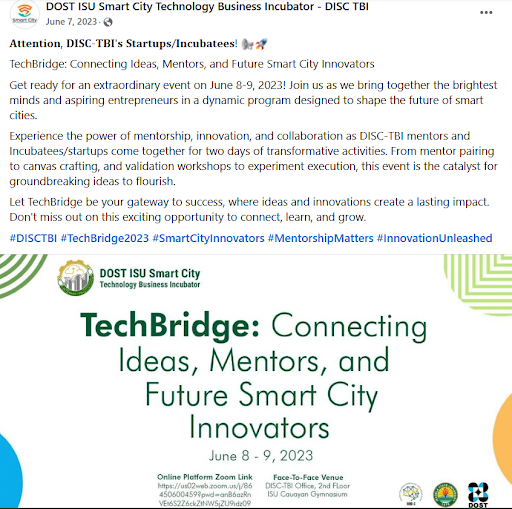
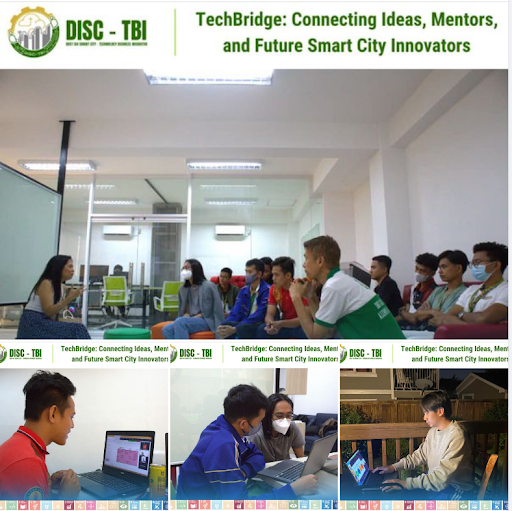
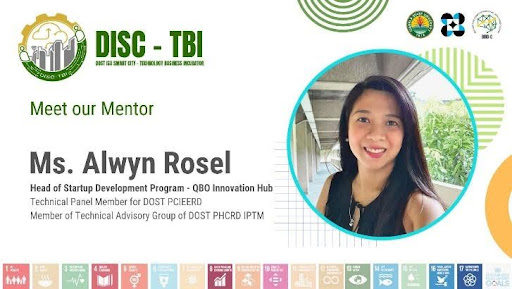
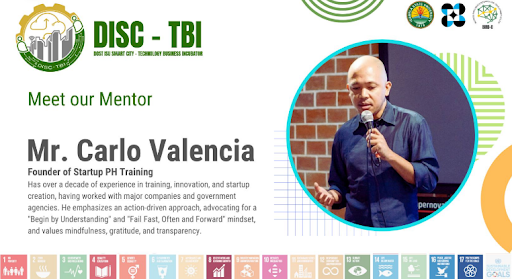
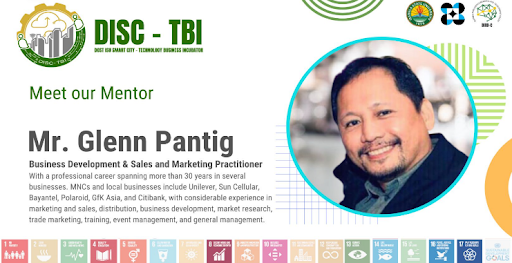
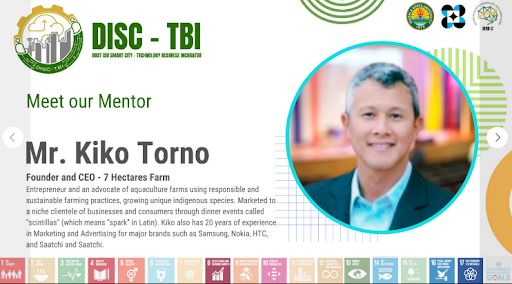
ISU Education towards Community Outreach
The Sining Tanghal sa Eskuwela extension program brings the transformative power of performing arts into the classroom, focusing on enhancing the language proficiency of Grade 5 and Grade 6 students at Dalenat Elementary School. Through the creative and engaging medium of performance, the program seeks to empower students by strengthening their skills in listening, speaking, reading, and writing—the four essential pillars of language proficiency.
With a unique approach that blends the arts with academics, Sining Tanghal sa Eskuwela tailors its activities to meet the specific needs of the students, ensuring that the lessons are not only effective but also enjoyable. The program’s activities include interactive lectures, dynamic demonstrations, and hands-on exercises that encourage active participation and foster creativity. Drama, music, and storytelling elements provide students with immersive and enjoyable environments to practice language skills, fostering their confidence and fluency.
The program’s ultimate goal is to cultivate a deeper love for language and learning, using performing arts as a bridge to connect students with their academic growth. The students engage in a process that not only enhances their language proficiency but also fosters their self-expression and communication skills, whether they are speaking in role-playing activities, listening attentively to dramatic readings, or reading aloud in front of their peers.
Incorporating the arts into language learning, Sining Tanghal sa Eskuwela transforms traditional classroom experiences, making education a dynamic and inclusive journey. By tapping into the creativity of students, the program fosters a more holistic approach to language development, preparing them for success in both their academic pursuits and future endeavors.
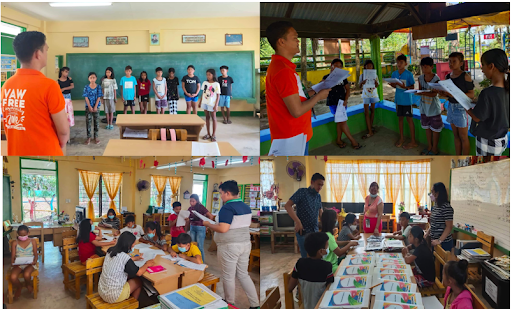
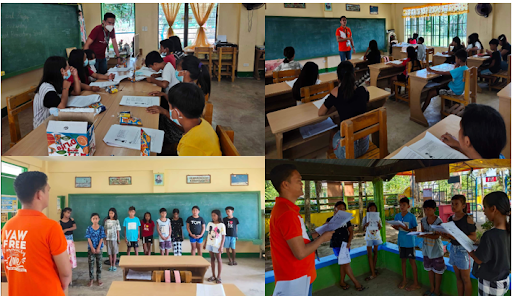
Enhancing Access to Academic Services for Disadvantaged Students
ISU implements policies and practices that facilitate access for marginalized and underserved communities, such as indigenous peoples and individuals with disabilities. This approach to inclusive education is instrumental in breaking down the barriers that hinder equal access to learning opportunities. Isabela State University (ISU) is a government educational institution that promotes inclusivity. As such, it has implemented policies to ensure equal access for individuals of all ethnicities, religions, disabilities, immigration statuses, and genders. These policies are found in the ISU Student Manual and the ISU Affirmative Action Programs, which aim to enhance access for disadvantaged students in compliance with RA 10931. These affirmations serve to empower all individuals.
Proportion of first-generation students
Isabela State University (ISU), recognized as a prominent SUC Level IV institution, exemplifies a commitment to academic excellence. ISU consistently showcases its dedication to providing high-quality education through ISO certification, recognition as a recipient of the esteemed Philippine Quality Award (PQA), high percentage of programs with Certificate of Program Compliance from the Commission of Higher Education, most numbered of accredited programs with the Accrediting Agency of Chartered Colleges and Universities in the Philippines, Inc. (AACCUP, Inc) and its role as an Associate Member of the ASEAN University Network-Quality Assurance (AUN-QA). The university’s reputation is evidenced by the notable enrolment figures at its campuses, highlighting the trust and confidence that students, parents, and stakeholders have in its academic offerings.
The most recent enrollment data indicates that ISU has a substantial student population of 40,420 across its multiple campuses, with a noteworthy majority—38,824 students—engaged in baccalaureate degree programs. The robust enrolment in undergraduate programs indicates the university’s wide-ranging attractiveness and the high calibre of its core academic offerings. Additionally, the university promotes higher education and career development through the enrolment of 312 students in post-baccalaureate programs. Furthermore, ISU’s graduate programs at the Masters and Doctorate levels are experiencing significant growth, with 1,284 students pursuing advanced education, establishing ISU as an essential center for research, innovation, and leadership development.
The enrolment figures reflect the university’s sustained dedication to academic excellence and its ability to address the varied educational requirements of students from diverse backgrounds. ISU’s ongoing ability to draw students from various tiers of higher education underscores the robust reputation of its programs and its commitment to cultivating the future leaders, professionals, and scholars.
ISU Students starting a degree
The data reflects the total headcount of students who began their degree programs at Isabela State University (ISU) during the first semester of the 2023-2024 academic year, with a total of 11,371 new enrollees at the undergraduate level. This strong enrollment figure highlights the fact that ISU offers a diverse range of degree programs that align with the course preferences of senior high school graduates, making it an attractive option for those seeking quality education.
This trend also demonstrates the university’s responsiveness to the educational needs of students, providing relevant programs that support their academic and career aspirations. Additionally, the university’s accessibility plays a crucial role in easing the financial burden on families. With ISU’s campuses located in close proximity to local communities, students benefit from reduced travel costs, while parents gain peace of mind knowing their children are studying in a safe and familiar environment.
The combination of relevant academic offerings and the convenience of ISU’s location provides a win-win situation for both students and their families, making ISU an ideal choice for those looking to pursue higher education while ensuring their safety and financial well-being.
First-generation of ISU students starting a degree
The data reflects the total headcount of first-generation students enrolled in undergraduate degree programs at Isabela State University (ISU) during the first semester of the 2023-2024 academic year. Out of a total student population of 40,420, 4,079 are first-generation college students—those who are the first in their families to pursue a higher education degree.
This significant number underscores ISU’s pivotal role in providing access to higher education for students from families without a history of university attendance. It highlights the university’s commitment to fostering educational opportunities and supporting the academic aspirations of individuals who are breaking new ground in their families’ educational journeys. The enrollment of first-generation students not only reflects growing trust in ISU’s academic offerings but also emphasizes the university’s impact on promoting social mobility and empowerment for families in the region.


